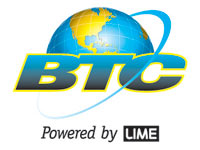
Bahamas Telecommunications Company (BTC) fears proposals to lower its mobile call termination rate will slash its international revenues by up to $1.5 million annually, reducing its ability to invest in infrastructure and benefit Bahamians.
Arguing that the rate for terminating cellular/mobile calls on its network should be left at their current 7.24 cents per minute for 2013, rather than slashed to 5.52 cents as proposed by the Utilities Regulation and Competition Authority (URCA), BTC said the move would only benefit foreign carriers and their clients.
This, it argued, was because the Bahamas “almost uniquely” in the Caribbean used a ‘receiving party pays’, rather than ‘calling party pays’ for calls to cellular phones.
And, given BTC’s current cellular monopoly, this meant there were no wholesale/interconnection charges levied between it and rival Bahamian operators. With no local call termination rate, the only such charge BTC currently levies is on international carriers – and their customers – for calling a Bahamian cell phone from outside this nation.
Explaining all this via a letter written by Felicity Johnson, vice-president for legal, regulatory and interconnection affairs, in response to URCA’s consultation on proposed interconnection charges, BTC said the mobile termination rate (MTR) slash was in effect a wealth transfer from it to rival foreign carriers.
“By lowering MTRs in the Bahamas aggressively, URCA puts BTC at a disadvantage relative to carriers in such countries, and again this goes against the interest of the Bahamian telecommunications industry and the country’s balance of payments.” Ms Johnson wrote.
Meanwhile, Ms Johnson also called upon URCA to “urgently” deal with interconnection rates set by other operators, particularly Cable Bahamas.
Arguing that Cable Bahamas had “market power” over its termination charges, she added: “Unless URCA brings these on to a regulated basis and reviews these regularly, BTC considers that it cannot negotiate interconnection charges on a fair and equitable basis, with resulting damage to its ability to generate profits for investment in its network.”
“BTC is of the view that URCA is discriminating unfairly against BTC by not reviewing the interconnection charges of the other operators at the same time as it is reviewing BTC’s rates.”
Doing it at the same time, Ms Johnson said, would ensure interconnection rates were renegotiated once, not twice.



